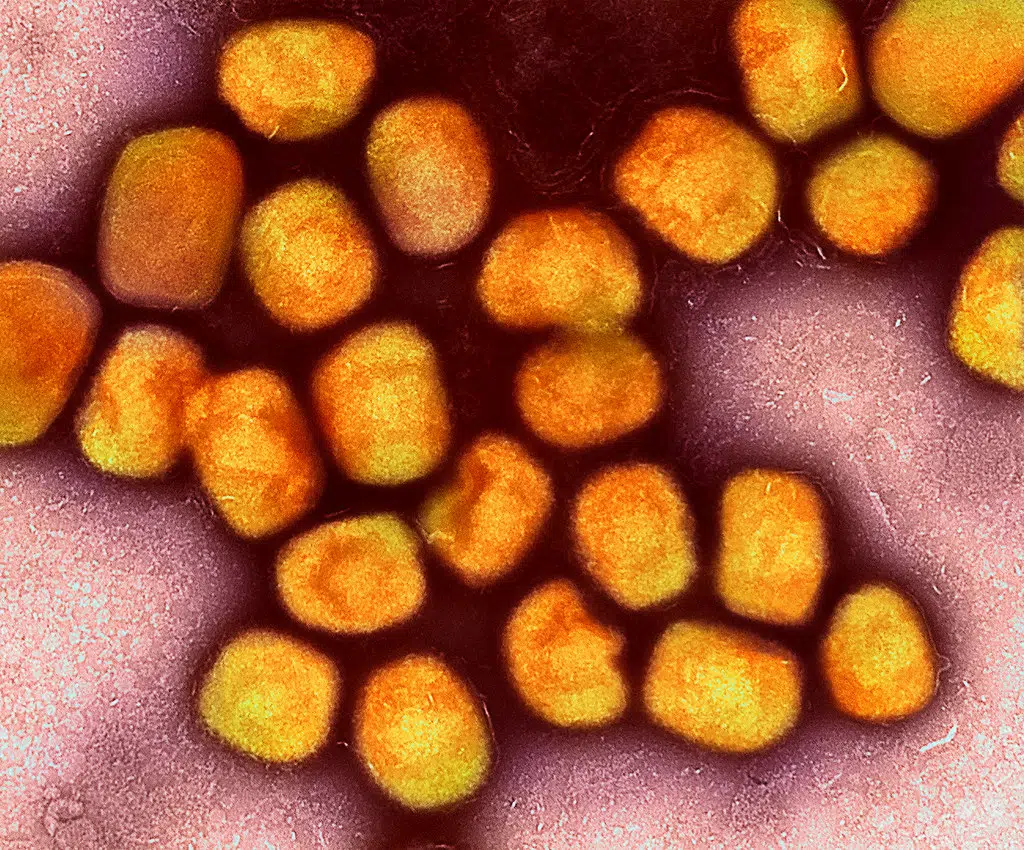The viral disease known as monkeypox appears to have arrived in New Brunswick.
Health Minister Dorothy Shephard made the revelation in the legislature on Wednesday.
“We now have a suspected case of monkeypox in our province,” Shephard said during question period.
A Department of Health spokesperson confirmed they are aware of a suspected case.
“All protocols for testing are being followed which includes sending samples to the National Microbiology Laboratory (NML) in Winnipeg,” Michelle Guenard wrote in an email.
“Until those results come back this case is unconfirmed.”
Guenard did not provide any other details about the suspected case, such as which health zone the person is located.
In a news release late Wednesday afternoon, the department said it was investigating a “possible travel-related case” of the disease.
“Public Health has ensured that close contacts of the individual were notified and said it does not have reason to believe they transmitted the infection,” said the release.
“Public Health wishes to assure New Brunswickers that the monkeypox virus spreads by close contact with infected humans or animals and does not spread like COVID-19. The public is not at risk.”
The department said Public Health will report any future confirmed cases and will ensure that the right measures are in place should a case be confirmed in the province.
As of late last week, there were 25 confirmed cases of the disease in Québec and one in Ontario.
“It is likely that additional cases will be reported in the coming days as the NML is continuing to receive samples for confirmatory testing from multiple jurisdictions,” said the Public Health Agency of Canada (PHAC).
Spread usually occurs through close contact with an infected person’s bodily fluids, respiratory droplets or sores, or direct contact.
Canada has not seen person-to-person spread of monkeypox before now, according to PHAC, which noted the risk of infection for the general population is currently low.
“It’s not as easily transmissible as COVID-19, where it is spread through the air and aerosols,” Dr. Howard Njoo, Canada’s deputy chief public health officer, said on Thursday.
“In this case, it really seems to be at the present time focused more on individuals who have close contact with each other, especially with those who obviously have monkeypox.”
Common symptoms include fever, headache, muscle aches, exhaustion, swollen lymph nodes, and a new rash.




